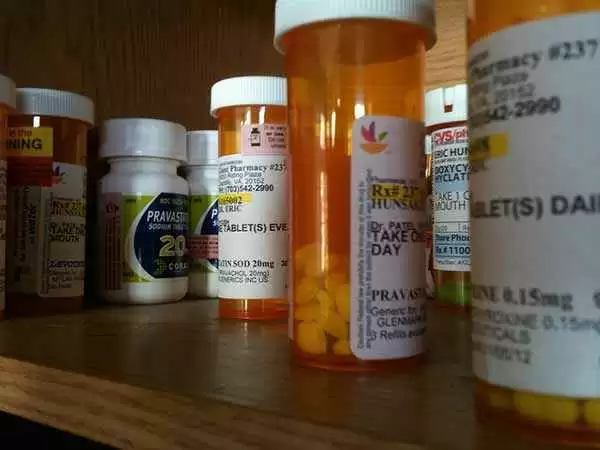
Celiac.com 01/11/2017 - Did you know that Advertising has "Cottoned onto us?" In December all the magazines are about baking, foods, cakes and bakes, candies and calories. If you are not aware of what "Cottoned up" actually means, it means that even if we have celiac disease, gluten sensitivity or dermatitis herpetiformis, they know that in December, prior to Christmas, we are geared up to baking tasty, sweet, gluten-free treats. And in January we are into healthy eating, like natural soups, low calorie warm and nutritious eating, cost saving ideas, because we have just gone through Thanksgiving gluttony and Christmas eating.
At one time we celiac people did not have the options that we have today. It was white rice bread from the freezer of the store, full of frosty tops, and vague cookies that cost $3.00 each. Now we have so many options we can get fat too, starting with Thanksgiving right up to New Year, when the new magazines come out with calorie cutting ideas, weight loss regimes, and a stringent diet!
Celiac.com Sponsor (A12):
Did you know that celiac disease affects people differently? According to the The University of Chicago Celiac Disease Center: "There are more than 200 signs and symptoms of celiac disease, yet a significant percentage of people with celiac disease have no symptoms at all. However, people without symptoms are still at risk for some of the complications of celiac disease". For example, my 19 year old grandson's girlfriend has celiac disease, and she likely had it all her life. She was tested for celiac disease because she had "tummy aches before I write exams". That was it! Fortunately she had a bright mother who took her to the doctor and asked for the simple blood test for celiac disease. Sure enough, after doing the blood test and undergoing the biopsy of the jejunum, she had celiac disease.
She was not skinny because she was 18 and growing, she was skinny because of malabsorption and eating her daily breakfast of cinnamon toast, and her usual lunch of peanut butter and jelly sandwiches. I am a little wary of the biopsy of the jejunum because as a nurse I found several discrepancies in the testing process. I have seen where a gastroenterologist who did failed to biopsy the correct area and told patients that they were negative for celiac disease. The patients became quite ill and the test was repeated by another gastroenterologist, and the test proved positive for celiac disease. In other words, the two patients did indeed have celiac disease.
Did you know that the Head of dermatology at the University of British Columbia recommends Dapsone as the drug of choice for clearing up dermatitis herpetiformis? It is called the “Golden Standard” of treatment, which he teachers to all his students of dermatology. I had three biopsies of the lesions on three different places in my body. It was not until the fourth biopsy that they acquired a Positive for dermatitis herpetiformis. It is very difficult to obtain punch biopsies of the DH. But if they put you on Dapsone for four days the lesions begin to clear up almost immediately. It took longer for the lesions in my scalp to go away, around six month, and four days for those on the other parts of my body to disappear. And they were so itchy (as any of you with DH know) that I actually contemplated cutting all my hair off. I tried Quellada liquid thinking it might be fleas, bed bugs, or some other strange skin disorder. "A little learning is a dangerous thing", that is what they say to all nurses.
Those of you who are newly diagnosed with DH and placed on Dapsone, please remind your doctor if he has not already told you that Dapsone can cause anemia. I was advised to take 2,000 Units of Vitamin C daily because it helps significantly with the anemia.
According to an article by Lisa Fittterman in the Winter 2016 issue of Allergic Living magazine, a 28 year old California Mom was stymied by her child's reactions and celiac outbreaks because they are so vigilant about reading labels when shopping. The culprit was a new generic controller inhaler for her asthma. The Mom looked up the medication on the Internet and saw the word, "Starch". She says the drug turned out to contain gluten as an additive. She hit roadblocks at every turn.
With celiac disease now affecting 1% of the people in North America, "drugs can present a distressing unknown". What is an excipient they ask? Inactive ingredients used as binding agents tent to give bulk and allow them to absorb water and disintegrate. They are derived from foods such as corn, potato or wheat starch. Independent investigations have shown that wheat starch is used less frequently than the other two because it doesn't bind well." When you ingest a new drug without knowing what it contains it is like walking down a road blindfolded says Sue Newell, the Canadian Celiac Association's manager of operations. "We teach people how to read labels and cut through jargon to identify every ingredient - but with prescription drugs they can't do that...they may need to take drugs, but they don't feel safe."
The US. Based National Foundation for Celiac Awareness (NCA) released in the Fall of 2014, almost 25 percent of the 5,625 people with celiac disease and gluten sensitivity reported having experienced gluten-related symptoms to medication. Patients and health–care providers said this has led to anxiety and non-compliance in taking drugs. Both Canada and the U.S.A. Food and Drug Administration have national standards of less than 20 parts per million (ppm) of gluten for a packaged food to claim to be gluten-free, but the requirements for food labeling do not apply to prescription or over-the-counter drugs. In May 2015, the FDA denied the request of a citizen's petition to either ban gluten as an inactive drug ingredient or require that its presence be labeled. The FDA said that "No oral-drug product is expected to contain more gluten than the amounts potentially present in foods that can be labeled 'gluten-free' under the FDA's food-labeling regulations."
It is far from an official requirement in Canada. The Canadian Food and Drugs Act sets the regulations for labeling gluten and allergens, but the focus has been far more on food. A Health Canada spokesperson says that the 2014 plain-language labeling initiative additionally makes it necessary for pill package inserts to list ingredients. But Newell of the CCA says these listings are not as transparent as they sound. Though the protein is not often present in our medications, the bad news is that finding out for certain may take the skill of a detective or a sleuthing pharmacist.
It is time for the celiac and gluten sensitive community, to unite and fight, write letters, speak to their pharmacists and repeat the fact that the person ordering the drug is "A brittle celiac," and all drugs need to be researched by the pharmacist prior to filling prescriptions.
Steve Plogsted, a pharmacist with a special interest in tracking gluten, suggests: "Watch for the word 'STARCH' as an excipient on a medicine, as it's the only likely culprit to contain gluten. If the word is there, try to drill down through the manufacturer as to what kind of starch. If it is wheat, you will need to avoid it."
One man took a stand for gluten-free drugs. Michael Weber was diagnosed with celiac disease on 2004, and immediately adopted the gluten-free diet to protect his health. BUT, after taking a generic for only a few days, the resident of Eastchester, New York, was distressed to find he was again developing symptoms, such as the dermatitis herpetiformis skin rash he had incurred before the condition was discovered. It turned out the pills contained gluten as an inactive ingredient. Shocked to find this undeclared exposure after he had been so careful, Weber contacted the FDA, but he was informed that the manufacturer wasn't braking any rules by not stating gluten's presence overtly. In 2008, Weber filed a citizen's petition requesting that the FDA either ban gluten outright in medications, or require manufacturers to label for the protein. Then, for seven long years, he got politicians to write letters of support, and made follow-up inquiries, but he received no replies.
Finally, in 2016 the U.S. consumer protection group Pullback Citizen filed a lawsuit to elicit a response from the FDA. Last May the agency issued a 21 page decision that denied the request for a ban and stated that manufacturers already needed to identify gluten as an intentionally added inactive ingredient to any drug that is taken orally. The FDA said it did, however, plan to issue "draft guidance" for industry regarding gluten in drug products, but no time-line was given. FDA spokesman Stephen King explained the decision in an interview saying that if people with celiac disease are doing well on a gluten-free diet, they "should" not be harmed by the very low amounts of gluten potentially present in oral drug products. Conversely, if they aren't doing well, "we would expect {them} to consult with [their] physician about ways to further reduce overall exposure to gluten. Such efforts might first focus on the diet as the most significant potential course for oral gluten exposure."
But Katie Einspanier, Weber's lawyer through Public Citizen, criticized the ruling as nothing more than a super-technical reading of the petition since the FDA's response focused on the possibility of gluten itself being an inactive ingredient. "The most likely scenario for gluten in drugs is that gluten is simply a natural component of another inactive ingredient and not separately added as an inactive ingredient." Weber is considering whether to draft a new petition with more precise language. We will keep you informed regarding this one man's fight for gluten-free drugs. He needs to be cheered, and we all need to sit down at our computer and help by writing to pharmacists, the FDA, and the College of Pharmacy.





Recommended Comments
Create an account or sign in to comment
You need to be a member in order to leave a comment
Create an account
Sign up for a new account in our community. It's easy!
Register a new accountSign in
Already have an account? Sign in here.
Sign In Now